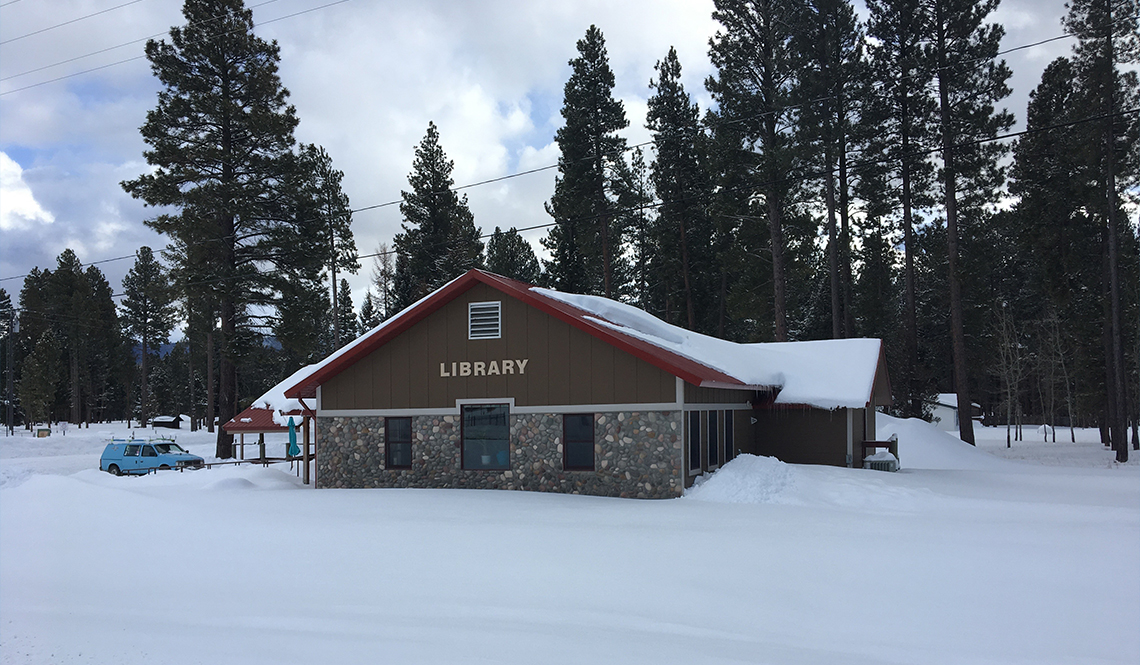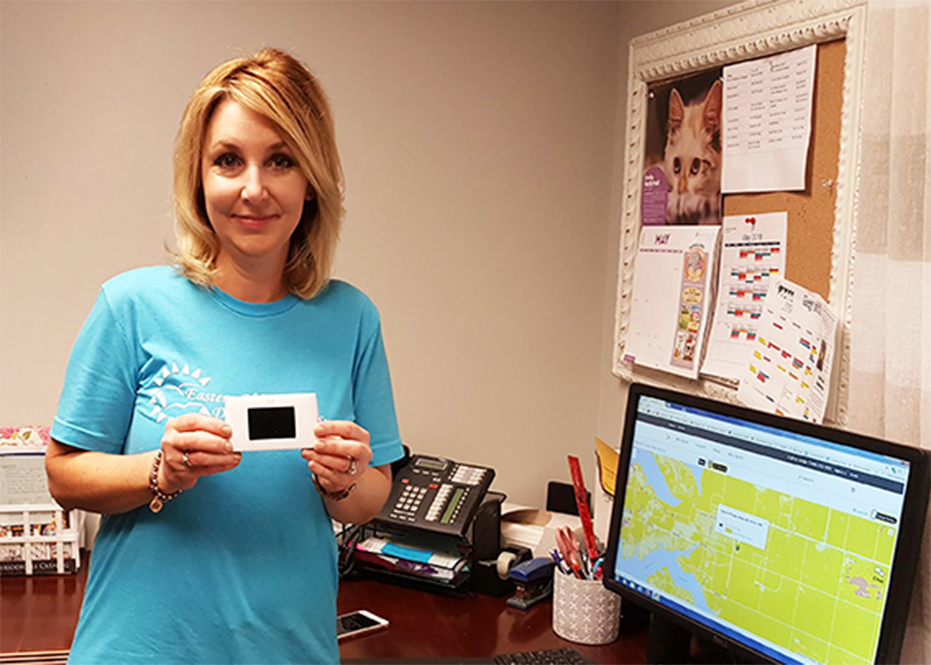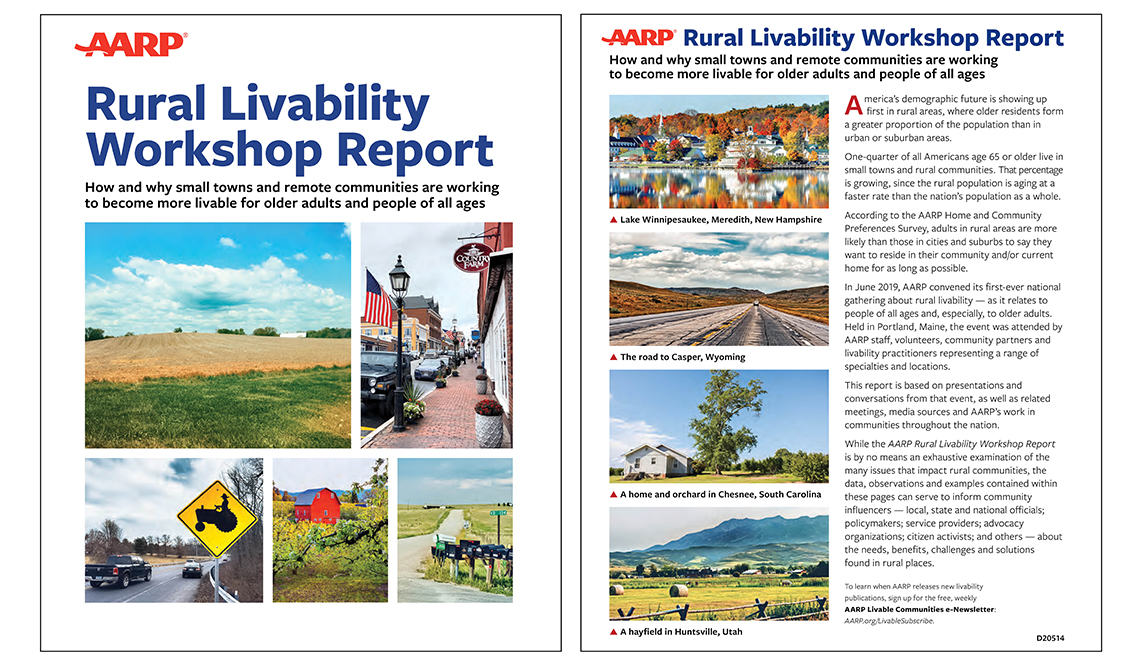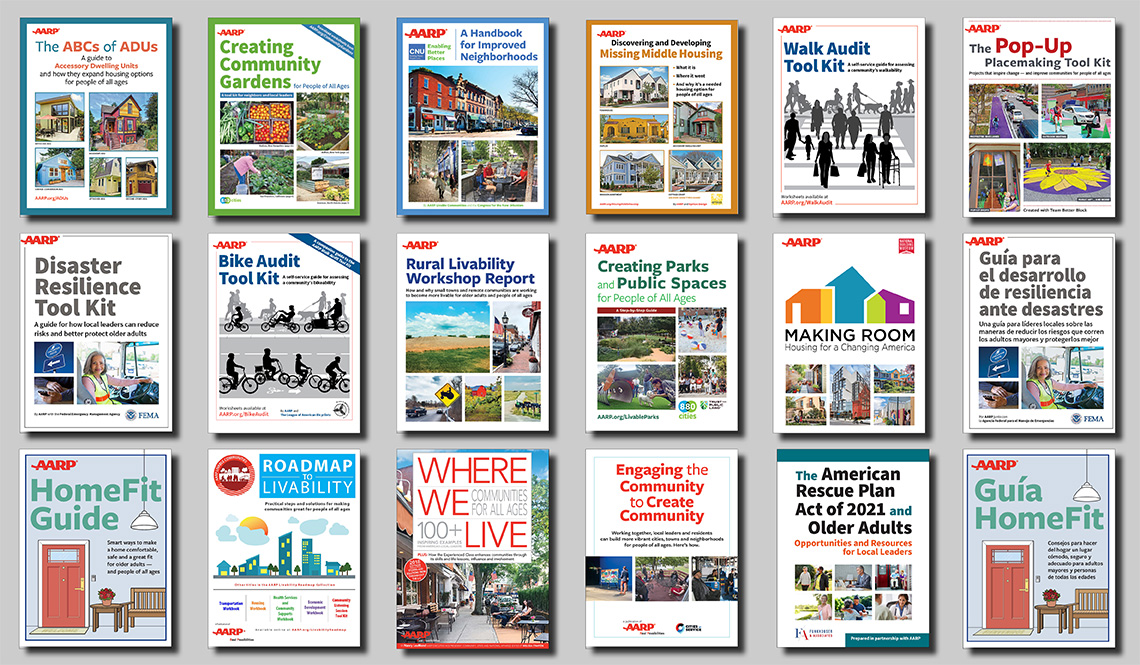Libraries (and Parking Lots) Are Hot Spots
In many rural and remote places, having a car is key to internet access
This article is adapted from the AARP Rural Livability Workshop Report. Information about downloading or ordering the free publication can be found at the end of this page.
Beyond Books
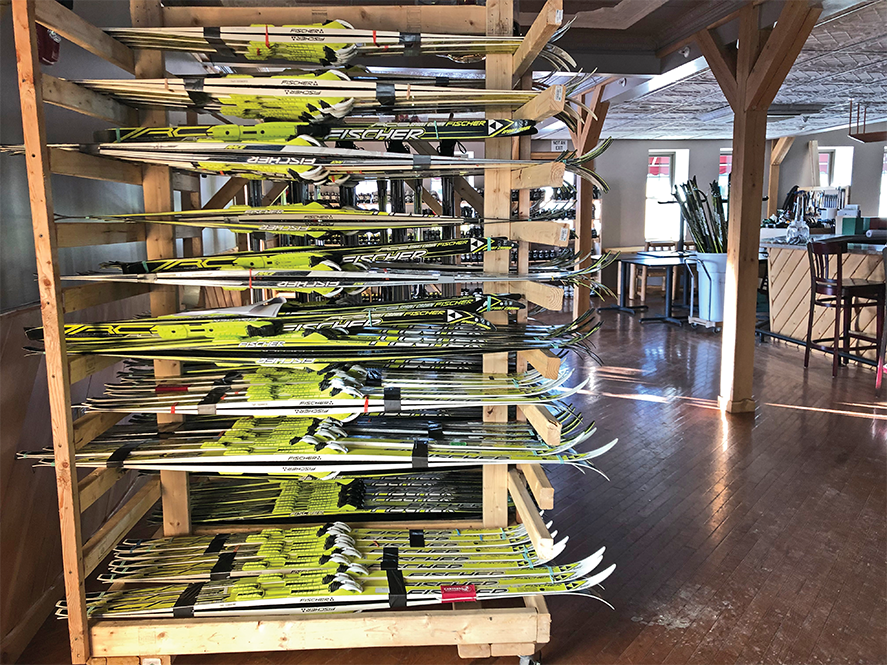
Photo by Melissa Stanton
Public libraries are customizing their offerings to meet community needs. Skis, snowshoes, mountain bikes, canoes and kayaks are among the holdings of the “Katahdin Gear Library” within the Millinocket Memorial Library in Maine. Most equipment can be checked out by residents for one week.
Today’s public libraries are destinations for books, of course, but also for activities, equipment (see the photo of skis below) and — perhaps most importantly in many rural communities — high-speed internet access.
But since many rural libraries have limited hours and depend on volunteers as staff, the doors are often locked when people need an internet connection.
As a result, it’s not uncommon to see the parking lots of closed libraries filled with cars, inside which are adults who need the internet to search for work or parents with students who need the internet to do homework. (The dining areas and parking lots of fast-food eateries often serve a similar purpose.
To address the lack of home-based internet, school districts in Athens, Georgia, and Winterset, Iowa, reached out to local businesses with free Wi-Fi and asked them to display decals that let students know the location is a safe and welcoming place for them to do their homework.
In Coachella Valley, California, school buses equipped with internet routers are parked overnight in residential areas that don’t have connectivity. The bus-based routers enable students to complete their assignments.
In 2017, Oklahoma State University launched the Rural Library Hotspot Lending Program in the towns of Elgin, Perkins, Seminole and Haskell — the latter of which has a population of 1,900, half of whom had no home access to the internet. During the one-year pilot, the program provided up to seven mobile hot spot devices to each town’s library, to be lent just like a book for one week at a time.
The American Library Association has information about setting up hotspot lending programs. (Use the keyword “hotspot” to search ALA.org.)
Rural Communities and the Internet
- Many Rural Communities Still Can’t Connect
- Rural Communities are Making Their Own Connections
- Rural Libraries (and Parking Lots) Are Hot Spots
- Teleworkers Welcome (and Wanted) in Eastport, Maine
- Grayson County, Virginia, Gets Connected
- Sullivan, Maine, Crosses the Digital Divide
- Enabling Age-Friendly Connections in Mount Washington Valley, New Hampshire
This article is adapted from the AARP Rural Workshop Livability Report.
Page published April 2020
AARP.org/Livable
Enter a topic, name, place, etc.

